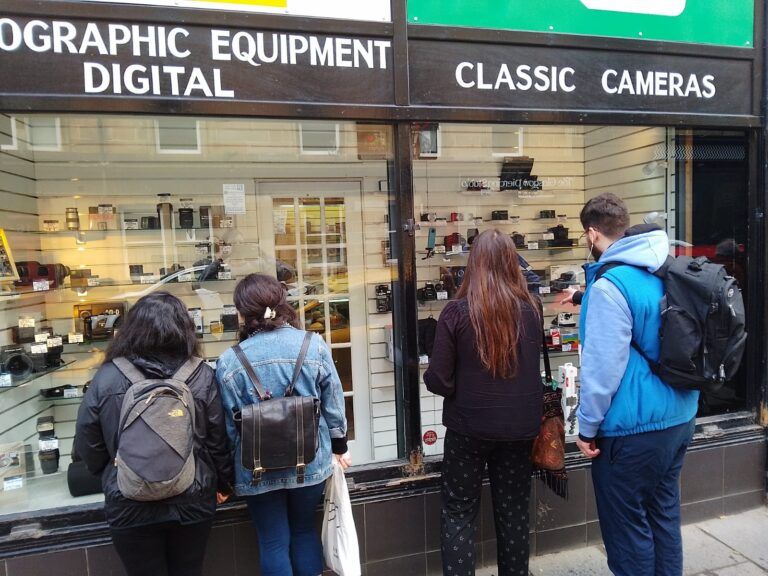The Refugee Employability and Training Support (RETS) project, run by West Of Scotland Regional Equality Council, provided capacity-building training, one-to-one employability support, and advocacy support to people seeking asylum and refugees in Glasgow and Renfrewshire.
West Of Scotland Regional Equality Council
Refugee Employability & Training Support – RETS


Key Information
Although not a formal partnership project, we strategically collaborated with a variety of existing partners to support the development of our target beneficiaries through training, upskilling, and access to advisory services.
The primary outcome of RETS was to ensure that beneficiaries acquired the skills, knowledge, and confidence needed to pursue suitable employment opportunities within a supportive and inclusive environment.
Key Information
Partnership
- The project achieved partnership working with 5 jobcentres, Queens cross housing association, Jobs and Business Glasgow, Govan community centre, Police Scotland Muslim Association, and Skills development Scotland.
Geographical reach
West of Scotland, Glasgow, Renfrewshire
Dates
May 2023 -Nov 2023
Target Groups
New Scots
Project Type
Spreading Good Practice
Background
RETS was community-led by individuals who were multilingual and had first-hand experience of the challenges faced by new arrivals in Scotland.
Activities supported participants to address barriers such as limited English proficiency, access to employability opportunities, minimal IT skills, and low confidence.
Involvement of New Scots in project
Consultations with refugees and people seeking asylum highlighted a significant need for us and similar organisations to enhance employability pathways. In light of the increasingly hostile environment towards these groups of people and the rising cost of living, the demand for this support has become even more urgent.
Impact
The project made significant positive impacts, including:
- Increased awareness: We raised awareness of employment opportunities for individuals through social media, signposting, and outreach efforts, reaching 5,673 people.
- ESOL and employability training: We collaborated with ESOL providers to offer ESOL courses, alongside three two-week in-house courses focused on basic employability vocabulary. Additionally, we conducted six IT and digital workshops covering the MS Office package and basic digital device use, helping to reduce social isolation and foster connections in the digital world.
- SQA Employability Award: We successfully delivered an SQA Employability Award over an eight-week course. As an SQA-approved Accreditation Centre, we have the capacity to deliver Employability Awards at Levels 3 and 4.
- Modern Apprenticeships awareness: We conducted four awareness sessions on Modern Apprenticeships for targeted individuals, assisting them in accessing these opportunities.
- Employer engagement: We worked closely with employers to bridge the gap between new migrants and employment opportunities, facilitating volunteering placements and internships within professional organisations.
- Support and guidance: We addressed inquiries related to employment, welfare, debt, housing, and other areas of broader service provision.
- Successful partnerships: The project achieved collaborative working with five Jobcentres, Queens Cross Housing Association, Jobs and Business Glasgow, Govan Community Centre, Police Scotland Muslim Association, and Skills Development Scotland.
- Employer connections: Through our partnership with Skills Development Scotland, we engaged with four employers to facilitate opportunities for new migrants and delivered two successful awareness sessions for young migrants.
- Volunteer support: The project supported four volunteer placements in various roles within WSREC.
- Further Education support: We successfully delivered the SQA Employability Award Level 4 to five individuals, supporting them in their pursuit of further education.

Challenges encountered
Language barriers, limited access to ITA funding courses, long waiting lists for ESOL courses at colleges, and high demand for employability support all pose challenges for us as a third-sector organisation with limited capacity.
Solutions
Language Barriers: We are collaborating with a range of interpreters to diversify our language support as much as possible. Additionally, we have engaged volunteers who speak relevant languages, such as Kurdish, to help fill gaps in our service delivery.
Limited Access to ITA: We are in ongoing discussions with organisations like Skills Development Scotland to explore how access to ITA funding can be expanded or how specific cases can be better supported.
Long Wait for ESOL: We are exploring alternative provisions, such as community and online support, to help bridge the gap created by lengthy waiting lists for formal ESOL acceptance in colleges.
Employability Support: We are partnering with similar organisations and key stakeholders to identify ways we can mutually support each other. We are also collaborating with colleagues within WSREC to determine how they can contribute to our efforts.
Reflections
The project successfully delivered its services as planned. To expand our offerings, we partnered with Govan, Patrick, Springburn, Glasgow City Central job centres, Queens Cross Housing Association, Jobs and Business Glasgow, and Skills Development Scotland to provide employability, advocacy, and English language support to refugees and new migrants.
Further Information
Contact
Contact:
Aneel Bhopal
Address:
201 Shuna St, Glasgow G20 9EY
Telephone:
0141 337 6626
Email:
info@wsrec.co.uk


